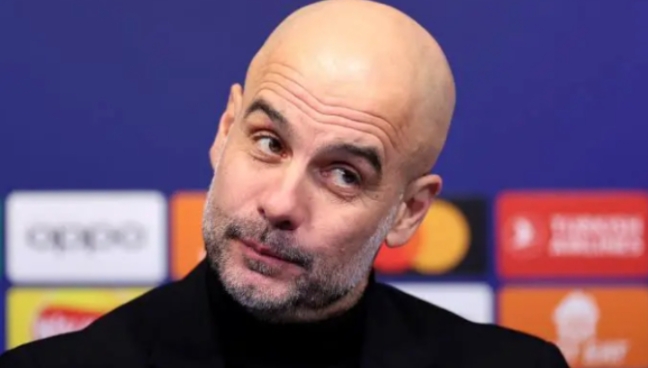
I Could Have Been Sacked – Manchester City Manager Pep Guardiola Admits
Pep Guardiola, one of the most successful football managers of the modern era, has admitted that he could have been sacked during his tenure at Manchester City. The Spanish tactician, who has transformed the club into a dominant force in English and European football, acknowledged that the expectations and pressures of managing at the highest level mean that job security is never guaranteed, regardless of past success.
A Start Filled with Challenges
Guardiola arrived at Manchester City in 2016 with a reputation as one of the greatest minds in football, having led Barcelona and Bayern Munich to numerous domestic and international trophies. His appointment was met with high expectations from fans and pundits alike, with many anticipating an immediate transformation in City’s playing style and results. However, his first season in England was not as smooth as many had anticipated.
City finished the 2016-17 Premier League season in third place, 15 points behind eventual champions Chelsea. The team struggled defensively, and Guardiola’s philosophy, which demanded high-intensity pressing and ball possession, initially seemed to falter against the physical and fast-paced nature of English football. The campaign ended without any silverware, leading to questions about whether his style could truly succeed in the Premier League.
Reflecting on this period, Guardiola has admitted that he felt the pressure and knew that, in another club or under different circumstances, his tenure might have been cut short. “In my first season, if the club had been another, I might have been sacked,” Guardiola stated. “But the owners and the people here trusted me. They supported me even when things were not perfect.”
Backed by the Club Hierarchy
Unlike many top European clubs that have quick turnover rates for managers, Manchester City’s hierarchy, led by Chairman Khaldoon Al Mubarak and Director of Football Txiki Begiristain, remained steadfast in their belief in Guardiola’s long-term vision. The club invested heavily in players who fit Guardiola’s tactical system, including key signings such as Ederson, Kyle Walker, and Bernardo Silva.
This patience and commitment to the manager’s philosophy paid off spectacularly in the following seasons. City dominated English football, winning the Premier League title with a record-breaking 100 points in the 2017-18 season. This achievement silenced critics and firmly established Guardiola’s system as one that could thrive in the Premier League.
A Period of Unprecedented Success
Under Guardiola, Manchester City have enjoyed unprecedented success, securing multiple Premier League titles, FA Cups, and League Cups. The 2018-19 season saw them complete a domestic treble, becoming the first English team to do so. The dominance continued with back-to-back league titles and, ultimately, the crowning achievement of winning the UEFA Champions League in 2023, solidifying their status as one of Europe’s elite clubs.
However, despite these accolades, Guardiola has remained aware of the precarious nature of football management. “It doesn’t matter what you’ve won in the past. If you go a couple of seasons without winning, you could be out. That’s the reality of football,” he admitted.
Handling Pressure and Expectations
The modern football landscape is unforgiving, and the expectation for constant success can often lead to quick managerial dismissals. Clubs like Chelsea and Paris Saint-Germain have frequently changed managers despite domestic success, underlining the volatility of the job.
Guardiola, however, has been able to navigate these pressures through his meticulous approach to management. His ability to adapt tactics, manage player egos, and build a cohesive team has been key to his longevity at City. He has also built a strong relationship with the club’s owners, which has allowed him the freedom to implement his vision without the immediate fear of being dismissed after setbacks.
Lessons from Other Clubs
Guardiola’s acknowledgment that he could have been sacked resonates when compared to the fate of other top managers. High-profile names such as José Mourinho, Antonio Conte, and Thomas Tuchel have all faced premature exits from clubs despite winning major trophies. The difference at City has been the club’s long-term vision and structured approach, which has allowed Guardiola to work through initial challenges rather than facing immediate dismissal.
Future at Manchester City
Despite his incredible success at City, Guardiola has often hinted at the finite nature of his tenure. His contract, which runs until 2025, suggests that his time at the club may eventually come to an end. However, he has also expressed gratitude for the trust and patience shown to him.
“I love it here, and as long as I feel the energy and the players respond, I will continue,” he said. “But I know that if we stop winning, questions will come, and the reality is that managers don’t stay forever.”
As the football world continues to evolve, Guardiola’s honesty about the challenges of management provides a rare glimpse into the pressures that even the most successful coaches face. His story at Manchester City is one of perseverance, adaptation, and, crucially, the importance of club support.
For now, he remains at the helm, chasing more glory and continuing to shape the future of Manchester City. However, his admission serves as a reminder that, in football, no manager is ever truly safe.

Leave a Reply